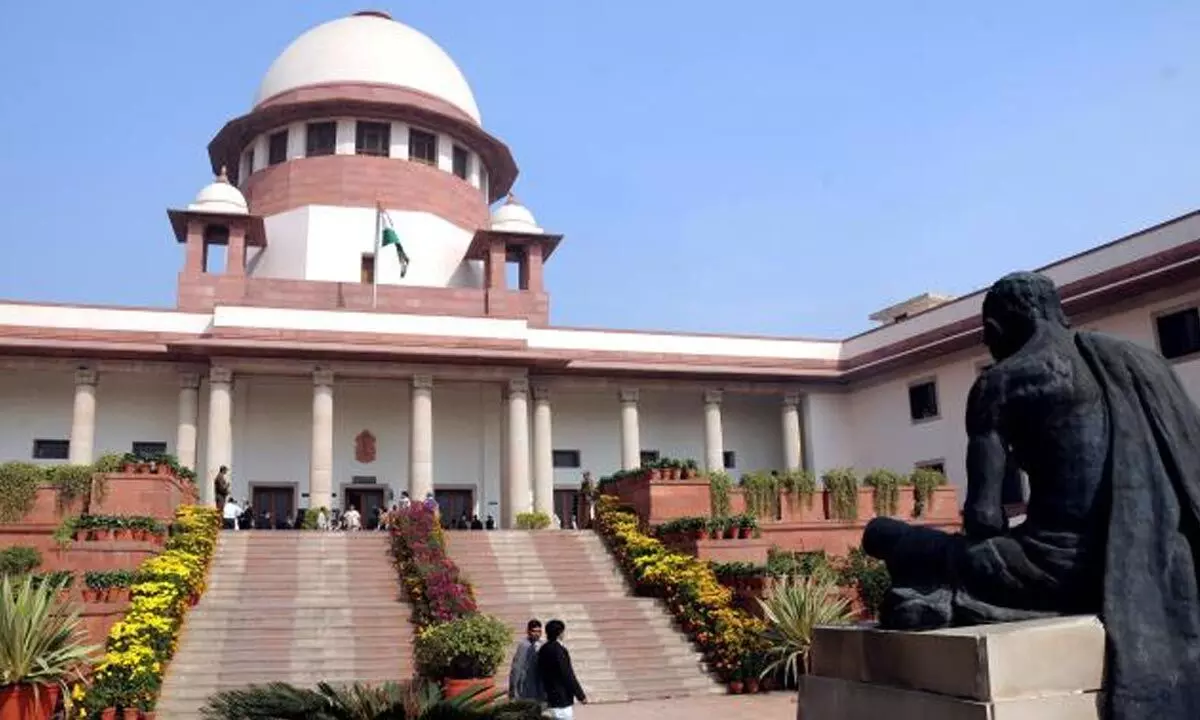‘Whether a resolution professional can be subject to prosecution under the PC Act’, SC seeks CBI’s response
Share :

Supreme Court of India
The Supreme Court has sought response from the CBI on a plea challenging Jharkhand High Court order, which declined to quash proceedings under the Prevention of Corruption Act (PC Act)
New Delhi: The Supreme Court has sought response from the CBI on a plea challenging Jharkhand High Court order, which declined to quash proceedings under the Prevention of Corruption Act (PC Act) initiated against a resolution professional (RP) appointed under Section 22(3)(a) of the Insolvency and Bankruptcy Code, 2016 by the Committee of Creditors (CoC) of the corporate debtor.
A bench comprising justices A.S. Bopanna and Prashant Kumar Mishra, in an order passed on June 28, said: “Issue notice to the respondent on the SLP as well as on the interim relief…..”.
Petitioner Sanjay Kumar Agarwal moved the apex court through advocate Vaibhav Niti and senior advocate Maninder Singh argued the matter before the court.
Agarwal moved the apex court assailing the high court judgment, passed on April 5, 2023, which rejected his application under Section 482 of the Code of Criminal Procedure 1973 and declined to quash proceedings under the PC Act initiated against him, an RP appointed under Section 22(3)(a) of the Insolvency and Bankruptcy Code, 2016 by the CoC of the corporate debtor. An RP is appointed once a company files for bankruptcy and insolvency proceedings are initiated.
The plea said: “Petitioner is seeking examination of an important and substantial legal issue involved in the present matter, which has come across for interpretation before the courts for the 'first time' after the promulgation of the Code relating to the legal status of the RP appointed by the CoC under Section 22(3)(a) of the Code that is, whether RP is a public servant and falls within the ambit of Section 2 (c) (v) & (vill) of the PC Act and within the jurisdiction of the CBI”.
The high court had held that the petitioner, who is a resolution professional, is a public servant under the PC Act. “The present petition thus raises a substantial question of law that has far reaching consequences in various proceedings pending before various courts in the territory of India: whether a resolution professional appointed under Insolvency and Bankruptcy Code, is a public servant as defined under the PC Act, and thus can be subject to proceedings and prosecution under the PC Act?”
The plea argued that the high court had not at all considered the relevant provisions of the code relating to the appointment, duties, and functions of the RP appointed by CoC before declaring the RP to be public servant under the PC Act. “The Petitioner humbly states that under the Code, CIRP being conducted by the RP, is not a duty in discharge of which the State, the Public or the community at large has an interest. Rather, the duty is discharged only towards the stakeholders of the corporate debtor and them alone”, said the plea.
The plea contended that there is a specific exclusion of the IRPS / RPs' from Section 232 of the Code, which seems to be the intent of the legislature to not include IRPS/RPs' in the class of public servant. “Therefore, the High Court erred in not appreciating the position……and hence, erred in not appreciating that RP' / IRP' is not a Public Servant' under the PC Act.”, said the plea.
The petitioner was appointed as an RP by corporate debtor Adi Ispat Private Limited, after the complainant had defaulted on a loan from the State Bank of India.
It is alleged that the complainant filed a frivolous case against the petitioner. “The petitioner, as RP, informed the CoC that due to grave suspicion of misappropriation of funds by the complainant (being suspended/ erstwhile director), the preferential/ fraudulent transactions are required to be identified”, said the plea. The petitioner also brought to the notice of the CoC the financial irregularities and misappropriation of funds of the corporate debtor done by the complainant.








